When you see a package of beef at the grocery store stamped with “Product of USA,” what comes to mind? Maybe you picture rolling American pastures, local ranchers working their land, and a food system that keeps dollars in rural communities while supporting regenerative agriculture. That is exactly what many shoppers imagine too.
But the truth is more complicated. For years this label has been a marketing shortcut that allowed imported beef to masquerade as domestic, undermining American farmers and misleading consumers who genuinely want to support them. At Caney Fork Farms, where we raise 100 percent grassfed and finished beef using regenerative methods, we have seen firsthand how this loophole affects farmers who are doing the hard work of rebuilding soils, sequestering carbon, and keeping rural economies alive.
Until new USDA rules take effect in 2026 a “Product of USA” label can legally be applied to beef from cattle born, raised, and slaughtered anywhere in the world as long as the final processing takes place in an American facility. Multinational meat companies have used this to source the cheapest beef globally, ship it here, repackage it, and market it as American. Consumers think they are voting with their dollars for local farmers, but much of that money leaves the country.
The numbers tell the story. In 2014 American grassfed beef producers supplied more than 60 percent of the domestic market. By 2017 that share had fallen to 20 to 25 percent, and by 2018 it hovered at just 15 percent even as total grassfed sales skyrocketed from 17 million dollars in 2012 to about 1 billion dollars by 2021. Today imports make up an estimated 75 to 80 percent of the grassfed beef segment even though they are only about nine percent of the overall American beef market. Farmers like us at Caney Fork Farms have invested heavily in grassfed systems that build soil health and support biodiversity, but we are forced to compete against imports that can undercut our prices while using the same patriotic branding.
This loophole traces back to the 2015 repeal of Mandatory Country of Origin Labeling for beef and pork. COOL, originally implemented in 2002, required retailers to inform consumers about the origin of their meat. It worked. When shoppers could distinguish between domestic and imported beef many chose to support American farmers, creating price premiums that strengthened rural communities. But Canada and Mexico challenged COOL through the World Trade Organization, claiming it violated trade agreements. After years of legal disputes and the threat of retaliatory tariffs Congress repealed COOL in 2015.
That decision did not just hurt farmers. It undermined food democracy. American consumers and ranchers supported transparency in labeling, but international trade rules and corporate lobbying won out. Without COOL the market for domestic, regeneratively raised beef eroded just as consumer demand for grassfed exploded.
There is some good news. In March 2024 USDA finalized new regulations requiring that voluntary “Product of USA” and “Made in the USA” labels can only be used on meat, poultry, and eggs from animals born, raised, slaughtered, and processed in the United States. This rule, taking full effect January 1, 2026, closes the most egregious labeling loophole and restores some integrity to domestic origin claims. Organizations like R-CALF USA, American Grassfed Association, and countless family farms including operations like ours fought for years to expose and address this deceptive practice.
But this is only a partial victory. The new rule is voluntary. Companies can still import beef and simply choose not to use “Product of USA” labeling, leaving consumers in the dark. Without mandatory COOL that covers all beef products American farmers remain disadvantaged. As a shopper you may think you are supporting domestic producers, but unless you know your farmer or your brand you may be buying imported beef.
This is why we talk so openly about our practices at Caney Fork Farms. We want you to know exactly where your grassfed beef is coming from. We graze our herds on pasture, rotate them carefully to build soil health, and steward our land to sequester carbon and protect biodiversity. These efforts cost more and take more time than industrial systems, but they produce healthier landscapes, stronger rural economies, and truly regenerative food.
We believe transparency should be the norm, not the exception. Restoring mandatory Country of Origin Labeling would help consumers make informed choices, reward regenerative farmers, and strengthen rural communities. Higher prices for truly American beef translate into viable farm businesses, better land stewardship, and thriving local economies.
Until then you can take matters into your own hands. Ask your grocery store or butcher where their grassfed beef comes from. Support farms you can verify like Caney Fork Farms through CSAs, farmers markets, and direct purchases. Urge your lawmakers to pass the American Beef Labeling Act which would restore full COOL for all beef products.
Food sovereignty, the right of communities to control their food and agriculture systems, starts with knowing where your food comes from. When you choose truly American regenerative beef you are not just buying dinner. You are investing in healthier soils, stronger rural communities, and a food system that serves people rather than corporations.
The label may say “Product of USA,” but it is up to all of us to make sure it actually means it.

